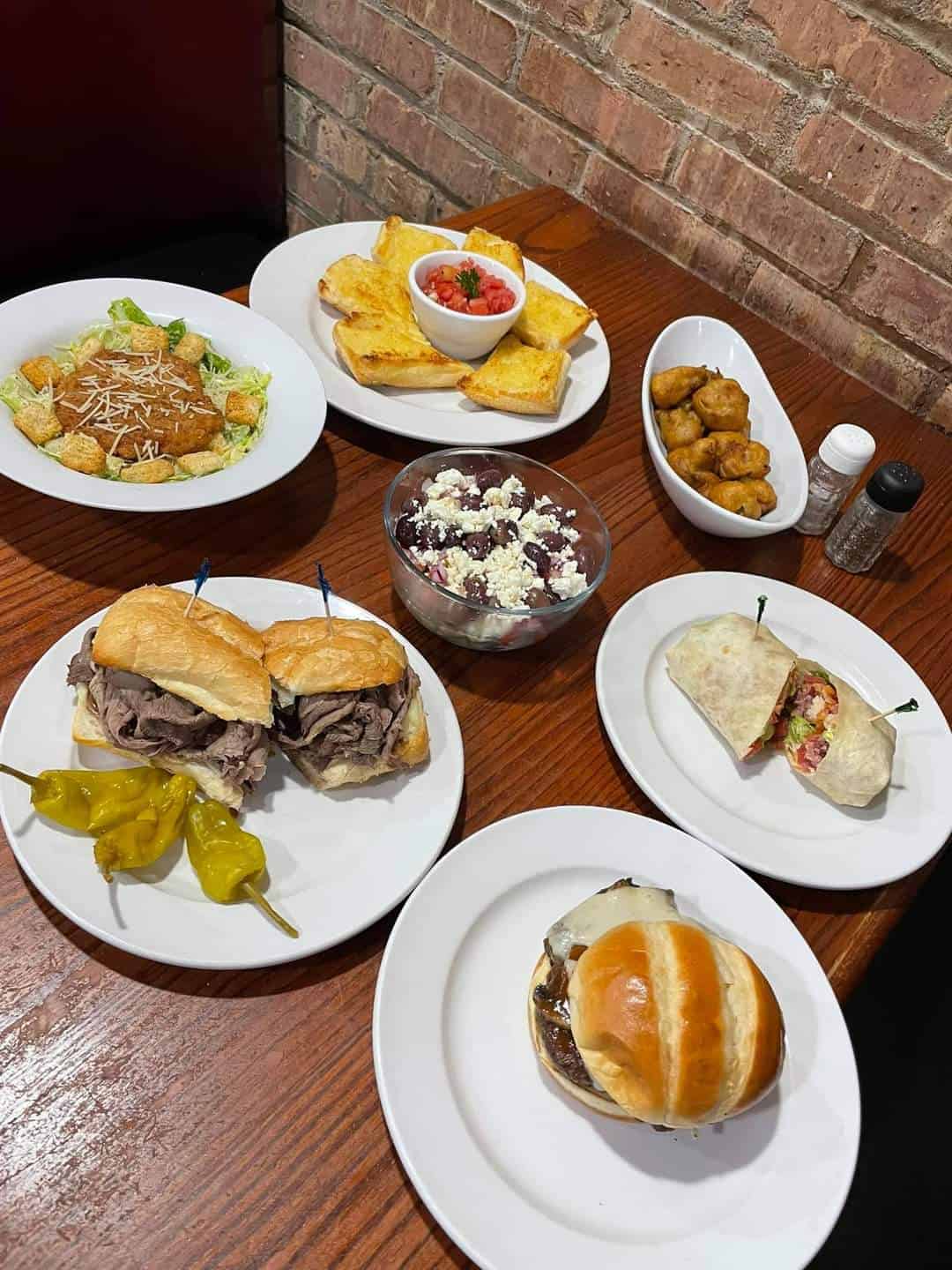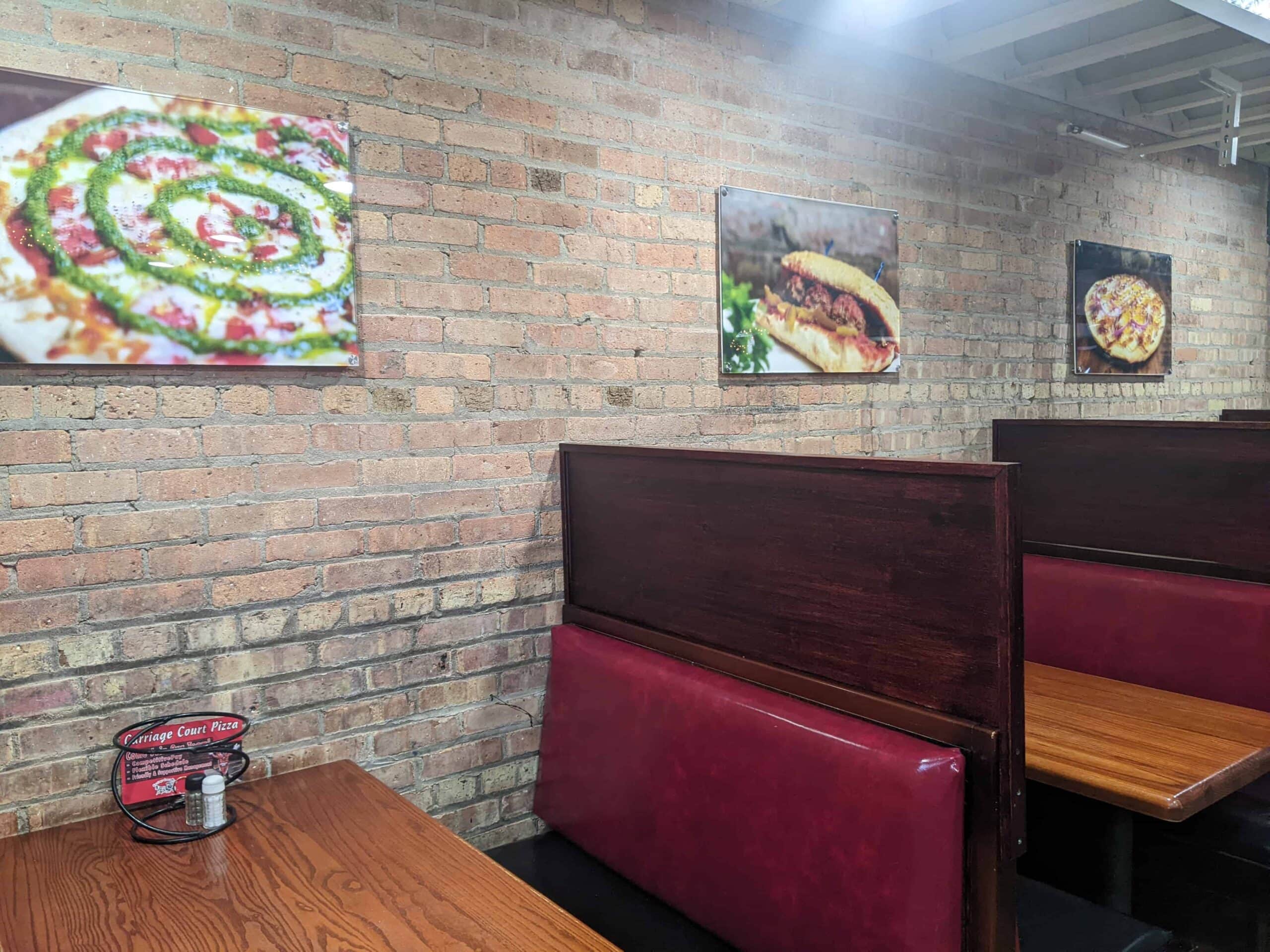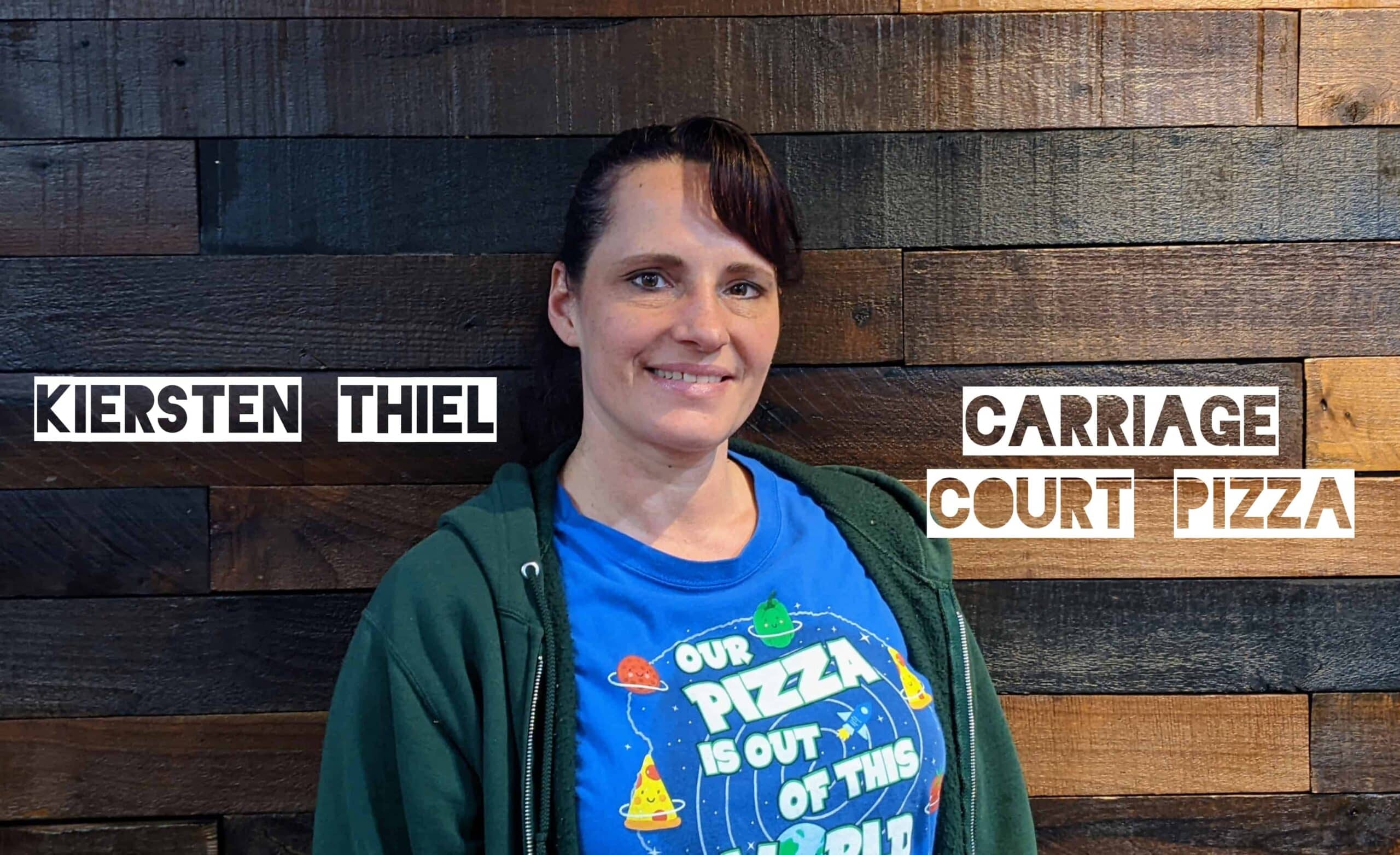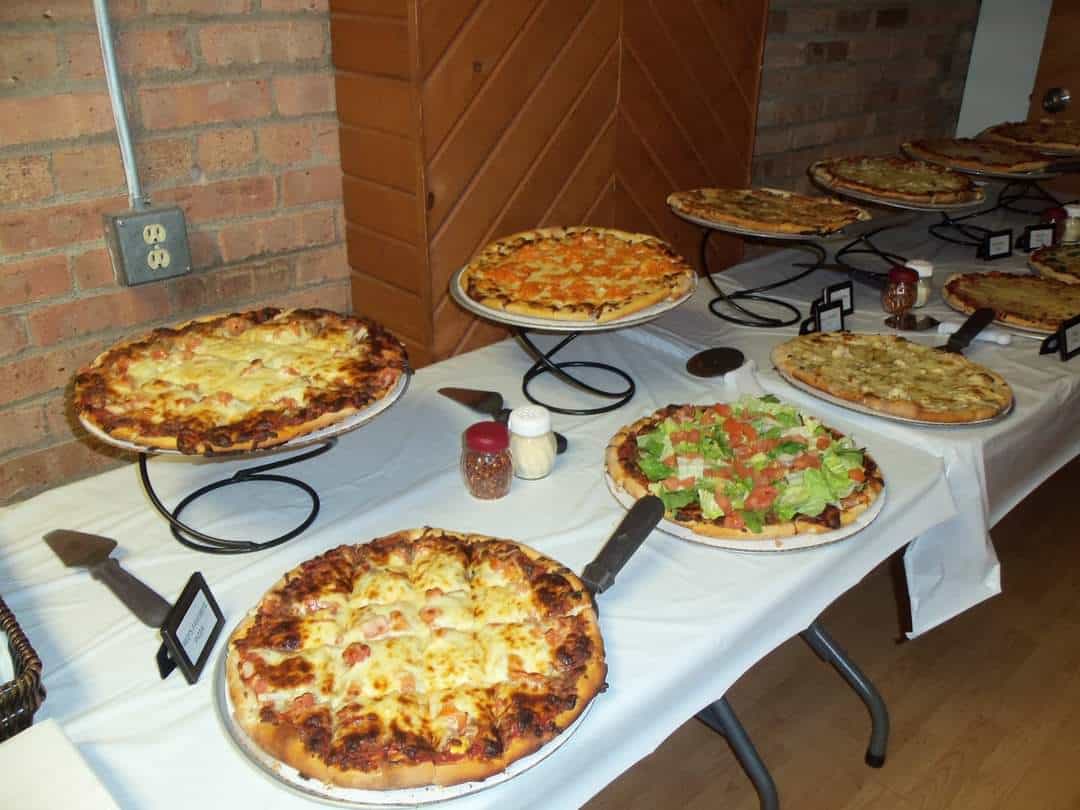FRIEND REQUEST: KIERSTEN THIEL OF CARRIAGE COURT PIZZA
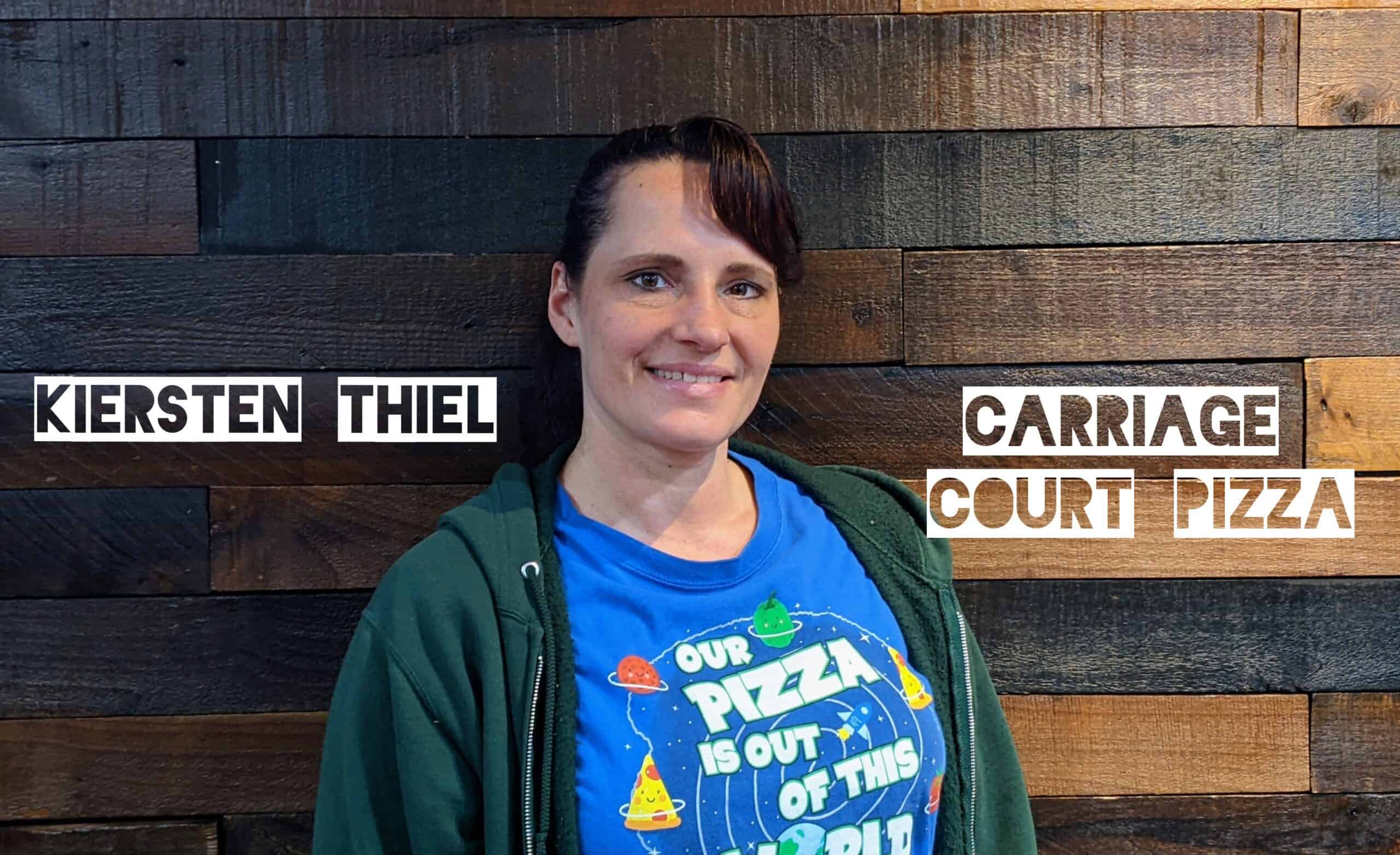
Kiersten Thiel started as a server 13 years ago and now is the General Manager of Carriage Court Pizza. She has seen the tremendous impact of a healthy team culture and has navigated the challenges of ever-changing technology. Her love for people and pizza has resulted in the restaurant running like a well-oiled machine.
LOCAL 219: Alright, we’ll start with was it circumstances, your childhood or hobbies that led you to this position?
KIERSTEN THIEL: I’ve been in the restaurant business probably since college. I got out of it and then I got back into it. I was coaching horseback riding at the time and that’s how I met the wife of Fred, the owner. I’ve known Fred since I was little; since he opened in 1984.
L219: This restaurant has been open since then?
KT: Yes, but we used to be over by the fairgrounds where Back Court Bar is. That’s where we used to be located. I started going there when I was a kid and so our families knew each other. Then I came in to fill in for him as a server, for like a month because he needed some help, and I never left.
L219: Wow, there’s a lot of history there. So you worked your way up from server to General Manager. Good for you! What did you study in college?
KT: Pre-veterinarian medicine.
L219: That’s a switch! I feel like I often hear of people in career fields completely different from their college major. Next question is, what gets you out of bed in the morning? What gets you excited for the day?
KT: I like coaching other people. It doesn’t matter if it’s in the restaurant or not; I also have a horseback riding therapy business outside of here that I do.
I’ve always had more of a coach type personality. So, my philosophy is, when I come into contact with people I want them to leave better than when I met them.
That’s why I’ve always been in a management-trainer kind of role, no matter what business I’ve been in. I always gravitate toward the trainer-coach aspects.
L219: Not everybody has the ability to coach well.
KT: I have a little bit of a control issue, so I’m always the boss everywhere.
L219: But in your mind if you coach them the right way you’ll get the end result you want.
KT: Exactly, there you go!
L219: Who do you feel has had the greatest influence in your life?
KT: I’d say my mom, probably. She is very similar to the personality-type that I am.
L219: The coach-type?
KT: Yes, she is a coach-like-manager. She likes to lead people, that kind of thing. I gained a lot of those attributes through her, and I respect her a lot. Even in retirement now, she coaches yoga. I think all my siblings are like that too.
L219: A unique connection is made while coaching. Not everybody has the patience to teach others, but when you can read different personality types, understand how people learn and what drives them, you’ve stepped into sacred territory.
KT: That lightbulb moment. I live for that moment when you see the light go on and they finally get what you’re trying to teach them.
L219: It goes from them struggling, and there almost being some tension because they’re just not in a rhythm yet to them slowly building confidence in themselves.
KT: Yeah, exactly, and then you see them passing it on to other people. That’s the most gratifying thing is when they start coaching others the way they were coached. It’s rewarding.
L219: It really is. What do you feel is the biggest lesson you’ve learned while being in the industry?
KT: You have to change with the times. I can’t coach people now the way I did when I first started.
L219: What has been the biggest changing factor you’ve had to adjust to?
KT: Probably technology and attention span. The way I was coached is different than the way we have to coach young people coming up in the industry today. I just did what I was told because that was the mentality when I was growing up: just do as I say and that’s it.
Now they’ll ask, “Why do I have to do this?” Or everyone wants to learn through YouTube videos, and everything is just so much different now. The younger generation always wants to know the “Why” before they’ll do the thing. They’re full of questions. So, it’s interesting, and if you don’t adjust, then you’re not going to succeed.
L219: When you’re young, and especially with this generation, you want the quick results and sometimes a process takes a while before you see change. You can’t achieve sustainable results unless you commit to a process. I can imagine the struggle with a short attention span too.
KT: Everything is at their fingertips all the time. I’ll hear, “Why can’t I get a raise in a week?” Or “Why can’t I start at 15 bucks an hour..” even though it’s their first job and they’re 16. It’s a learning curve, but you have to change with it, so you do.
L219: How do you feel like you’re coaching strategy has adjusted?
KT: We actually have really focused on the culture of the business. It’s interesting, like six years ago, we got about 15 employees together and we said, “We really want to create a culture that’s all inclusive and everybody can learn in,” and you know, and a drama free culture in a restaurant business is rare.
It was people who had been here for a day and people who had been here 15 years, and we asked them, “What’s our purpose in the community? Why are we here? What values are important, and how are we going to maintain them?”
In a few days we went from 30 values to 14 and now everybody who works here knows our purpose statement by heart. We quote it everyday at the pre-shift meeting three times per day. More important to us is the values that makes us who we are. People who come here want to work here and then when they’re on break from a college, they want to come back and work here, and they’re siblings want to work here.
L219: It sounds like you’ve truly created a Team Mentality. By committing to the same thing you’re able to hold each other accountable.
KT: And really if we hire someone who’s not a good fit for the culture, like some people can get through the interview process by faking it, the staff can point them out within days. They let me know if someone isn’t going to work out, or if they’re toxic.
So that’s the good thing: we don’t keep people who don’t belong here for long periods of time because one toxic person can do a lot of damage. The accountability to each other is really important to us. We can trust our employees to hold it up; I don’t have to oversee everything.
L219: I feel like those three factors of focusing on specific values, holding each other accountable and not allowing bad apples to stick around could transform any company’s team. What do you enjoy most about your position?
KT: The people. I like the regulars that have been with us for 30 years, and seeing their kids come in and then their kids come in. It’s a joy to be in the community and see that. Then seeing all the new employees that want to work here and then where they go after here; they’ll come back 10 years later and tell me what they learned and what they’re doing now.
They will take our culture and use it at home. Even when you don’t think they’re ingesting it.
L219: You can truly mold someone’s character if they start at a young age and you’re coaching them well.
KT: They have good character when they come in. That’s the important part, but then we teach them how to communicate. That’s the challenge, too, with texting and YouTube and videos: nobody knows how to communicate verbally.
L219: I imagine they likely struggle to face conflict well also.
KT: Yes, conflict is a big thing. I’m like, “You can’t ghost me. I’m your boss. We need to talk and have a conversation.” Last I enjoy the pizza, of course. Everybody loves pizza.
